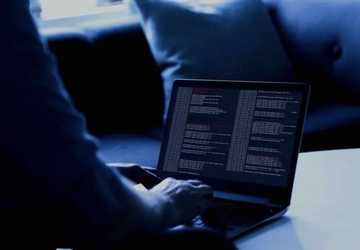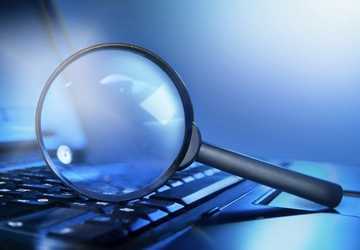How to Protect Your Computer from Viruses and Malware?
Everyone uses computer technology to complete daily tasks. Therefore, the computer may be vulnerable to viruses or malware. Computer viruses disturb most computer users. It can damage your data and files.
There has been an increase in ransomware, cyberattacks, hacks or data breaches affecting companies around the world. Security is critical to protecting your business from attacks. However, avoiding viruses and malware on your computer is not easy. If you have business knowledge, you can easily evade attackers.
What is a computer virus or malware?

Malicious elements damage your computers and networks by moving them from one device to another. This malware can infect your programs and corrupt data. As a result, your computer will stop working completely. Even less harmful viruses that attack a system can affect performance and computer memory, causing the computer to crash.
How do you know if your computer is suspected of being infected with a virus?
If you are not sure why your computer is not working properly, evaluate the following symptoms to determine the problem.
● Computer runs slowly
● Some programs are not running on the computer
● Web browser closes unexpectedly
● Display error messages about missing or damaged files
How to protect your computer
Securing your computer is important to protect sensitive data. Therefore, cybersecurity rules must be followed. Check out the best ways to add extra security to your system.
Install antivirus software
An additional layer of security is required. You can use an antivirus program to protect your computer from viruses. Even if you do not use the Internet on your PC, it is important to have antivirus software on your PC. This is because your device can be infected with viruses via USB drives. Antivirus software scans for viruses every week. When the software detects suspicious activity, it attempts to break into your operating system. Take steps to have a secure computer without spending any money. Choose a package with update capabilities.
Install anti-spyware and anti-malware software
Similar to viruses, malware can damage an entire computer system. When you install antivirus software, you also get anti-malware and anti-spyware software that allow you to remove items from the program. Run regular computer scans. You need layered security to protect your computer from future risks.
Keep software up to date
Computer operating systems need to be updated after several months to expand functionality. Keep your computer safe by updating your security software. After receiving the software update notification, start the download and installation. This prevents hackers from stealing your data. Enable computer updates to fix errors and anomalies in your system. If you don't do this, hackers will take advantage of the system.
Back up your computer
Many malicious viruses can damage your computer's contents. Setting up a regular backup schedule will ensure your data is retrieved. If it is difficult to remove viruses or malware from your computer, you will need to delete some data, such as corrupted files or hard drives with code that has corrupted your data. There is no other option to recover data other than backup. Storing data in the cloud or external drives allows users to manually back up or copy data. If you back up the malicious code, the problem will arise again. So, instead of backing up malware, restore data from external drives, online storage, and cloud storage.
Use strong passwords
Passwords are the first line of defense to protect your account and prevent unauthorized access. When setting a password, use one that is strong and complex, not one that is easy to guess. Additionally, using the same credentials for every website increases the likelihood of an attack. Therefore, set a strong password and use two-step verification to prevent it from being hacked. Also, keep updating your passwords so that no one tries to decrypt them to gain access to the computer system.
Check email attachments
One of the most common sources of viruses is through email. When your email provider sends you an email, scan the attachment before opening it. Otherwise, the virus contained in the email will transfer harmful parts to your computer. Once emails are completely filtered by the software, they make their way into your inbox. This can be opened safely. Additionally, when hackers try to access your computer system, they add viruses to emails. Most phishing emails look like spam because the email address is unrecognizable. Such emails contain links to fake websites. Therefore, avoid opening such emails and delete them.
Use safe websites and links

Many websites imitate real websites, spreading viruses to user systems and hacking them. Avoid opening websites that look fake. The URL displays the name of the website; check that the spelling and code are correct. When opening a website, do not click on unnecessary ads or links. Links may contain dangerous viruses that may cause potential threats.
Use firewall
Another best way to protect your computer is to connect your device to a network firewall. Firewalls act as a perimeter and block viruses and malware when malicious agents attack a computer. It also monitors incoming and outgoing internet traffic. A built-in firewall benefits the operating system in the long run. Therefore, please configure your computer and update the firewall settings.
Check download status
Downloading files from the Internet can cause problems. When you start downloading from a website, pay attention to the content. If it's a sneaky site, it's best to avoid it. Computers with anti-virus or anti-malware software will warn the user if the download is unauthorized. So you can cancel it immediately. Viral content cannot be downloaded without your permission. Additionally, browsers such as Internet Explorer have outdated security systems, allowing hackers to gain access to your system. These browsers also start downloads in the background without warning you. Better ensure security settings to prevent unwanted access.
Install ad blocks
Advertisements appearing on online websites are not genuine. Such ads direct you to external sources that install viruses or malware to steal data. However, you can avoid this by using a reliable ad blocker. Even if you have an ad blocker, you should be careful when using the website.
Conclusion
Unprotected computer systems open the door to virus and malware attacks. Hackers look for easy targets. Therefore, use comprehensive protection measures to eliminate threats and protect your computer system.
Related Posts
- How to Choose the Right Processor for Your Computing Needs?
- 5 Tips to Extend the Lifespan of Your Laptop Battery
- How to Create an Effective IT Disaster Recovery Plan: Key Steps
- How to Build Your Own Gaming PC from Scratch?
- How to Use VPN to Access Blocked Websites?
- 4 Ways Smart Home Devices Can Simplify Your Daily Routine